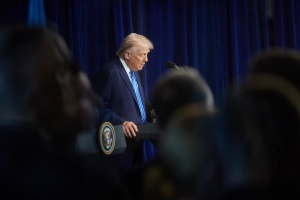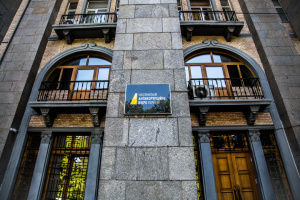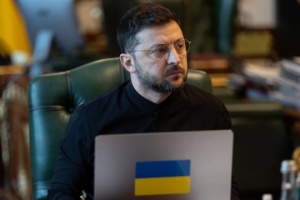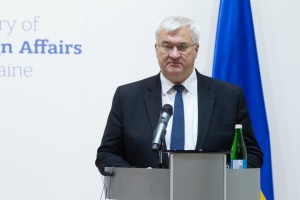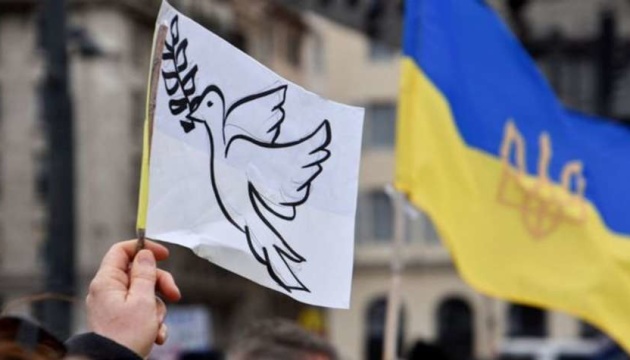
Potential Peace Deal with Russia: Current Status and Prospects
On May 3, the American outlet The Telegraph reported that Donald Trump had allegedly developed a "detailed plan for how to end the war peacefully, but that would not be revealed before the election”. France and China were jointly trying to find ways to a peacefull resolution to the conflict during Macron’s visit to the PRC and his talks with Xi Jinping earlier this month. The Chinese leader, however, emphasized that he is in favor of holding a global peace summit, but wants Russia to be at the table among other interested parties.
On May 6, the Italian Minister of Defense, Guido Crosetto made a similar peace-making statement, as quoted by Il Messaggero outlet: "The economic sanctions imposed on the the Russian Federation have failed. The West needs to make more efforts to ensure a diplomatic settlement of the war that Russia had unleashed in Ukraine. The only way to resolve this crisis is to get everyone involved in order to achieve a ceasefire first, and then peace."
One, of course, can cite several more such examples. The most recent was a statement made by the President of the Czech Republic, Petr Pavel, calling for a cease-fire and peace negotiations. In an interview with Sky News on May 13, he said as quoted by iDNES.cz: "We need to stop the war and start debating the future arrangement. We have to be realistic. It would be naive to say that Ukraine will be able to recapture the occupied areas in the foreseeable future. Russia will not just give up the areas it occupies."
Vladimir Putin, on the eve of his visit to China, gave a written interview to the Chinese news agency Xinhua, in which he stated that the Russian Federation is ready for negotiations with Ukraine. "... But these should be negotiations that take into account the interests of all the countries involved in this conflict, including our interests," the Russian dictator said.
Finally, on May 14, The New York Times, which was repeatedly "caught" promoting pro-Russia narratives, wrote that "negotiations between the Russian Federation and Ukraine are indeed not far off."
What can this “buzzing" around the potential negotiating process mean? What is this - a real process or information noise?
This can be related to the preparations being made for the upcoming Global Peace Summit, which is set to take place in a few weeks’ time, on June 15-16, in Switzerland.
"In the future, negotiations on the end to hostilities between the Russian Federation and Ukraine are inevitable, even if we succeed in liberating all the occupied areas"
Volodymyr Fesenko, the Chair of the Board of the Center for Applied Political Studies "Penta", in a comment to Ukrinform, said that “discussions on peace negotiations are always there where there is a war taking place. One example is the ongoing conflict in the Middle East [between Israel and Hamas], where peace talks are being discussed. Regarding a negotiated end to the war being waged by Russia in Ukraine, that issue has arisen multiple times since the first days of Russia’s all-out invasion”.
"The current actualization of the topic of peace negotiations is related to two circumstances: the first is the preparation being made for the upcoming Global Peace Summit that is set to take place in Switzerland; the second is Russia's promotion of its vision of how the war should end – that is, peace on Russian terms ("demilitarization" and a kind of "denazification" of Ukraine, a ban on Ukraine's NATO membership, recognition of Russia's sovereignty over the areas it annexed from Ukraine, etc.) – and this under Russia’s military pressure," the expert says.
“These two circumstances, along with the difficult situation that has developed on the Ukrainian front line and the approaching presidential election in the USA, have contributed to the renewal of discussions among Western political elites about the future of the Russo-Ukrainian war and the conditions for its end. As it was before, different views are being voiced, which is characteristic of a democratic society”.
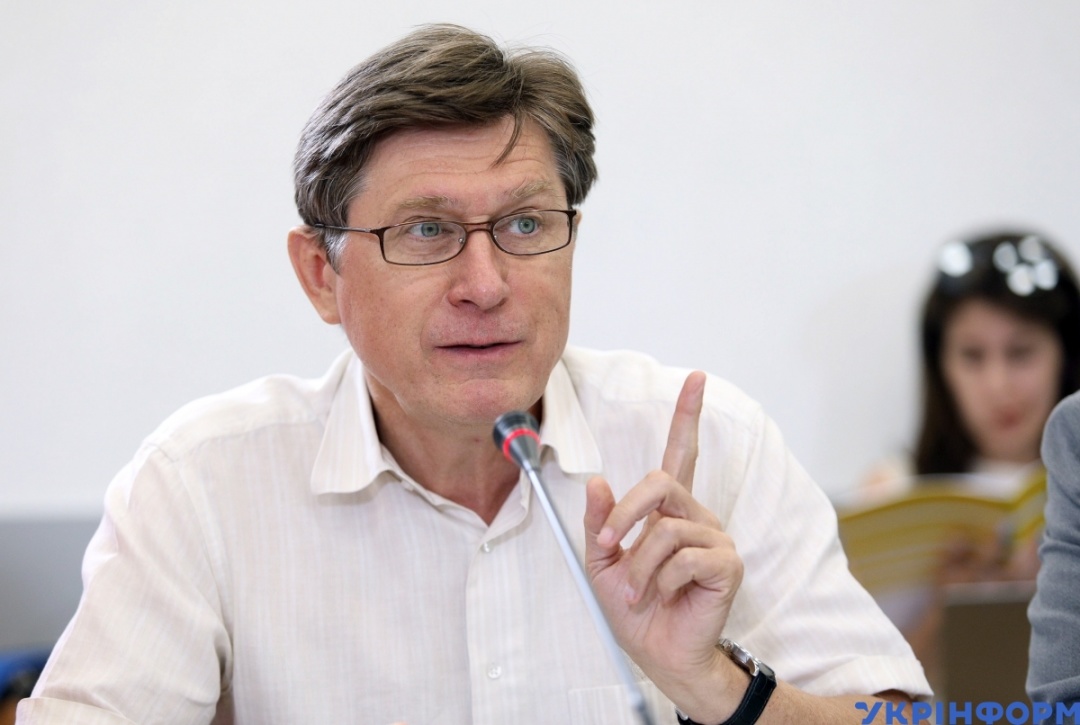
"There are proponents of peace talks even now, where there are certain concessions by Russia. There is a more pragmatic approach proposed as well - negotiations with Russia regarding an end to this war should be started only from a position of strength, when the war situation in Ukraine stabilizes, the Russian aggressor is stopped (or even better, pushed back at least from part of its occupied areas) and Putin realizes that he will not be able to win this war he is waging in Ukraine."
It is this view, the expert emphasizes, that currently dominates among Western elites: "The official stance of Western leaders remains as it was – it is Ukraine who will decide when and on what terms to start negotiations. This is exactly the stance the US Secretary of State, Anthony Blinken made public in Kyiv."
When asked about approaches to be made with regard to how to end the war through peace negotiations, Blinken answered - calm and rational.
"In the future, negotiations on the end of hostilities between Russia and Ukraine are inevitable, even if we manage to liberate all the occupied areas. And we need to think through and set up a strategy and tactics for such negotiations," said Volodymyr Fesenko.
According to the expert, discussions and statements being made about peace negotiations to end Russia’s war in Ukraine reflect the aggravation of the information, political and diplomatic struggle surrounding the Global Peace Summit in Switzerland. It is therefore a real process, not information noise.
"This is an open and hidden struggle between two strategies – Ukrainian (and of our international partners) and Russian. The Ukrainian strategy is for the international community (at least a significant part of it) to agree on a common line on future peace negotiations, with due account taken of the provisions of President Zelensky's Peace Formula. This is what the Global Peace Summit is for. This will definitely strengthen our potential negotiating positions. That is why Russia is so frantically trying to disrupt this summit, or at least to neutralize its importance and possible solutions," the political analyst says.
Russia's strategy is the exact opposite of that of Ukraine; it is aimed to force Ukraine and the West into negotiating peace on its own terms by escalating the war further still.
"What should also be appreciated is that Russia is not seeking a freeze on the war (that is, a simple cessation of hostilities), but, rather, a full-fledged peace deal committing Ukraine to make fundamental concessions to Russia. It goes without saying that such peace negotiations on Russian terms are unacceptable to us, nor to most of our international partners," Mr. Fesenko went on to note.
What happens next? The war will continue, the expert believes.
"The fate of future peace talks will be decided on the battlefield in the first place. But at the same time, there will be attempts to start these negotiations. If a joint document outlining a common policy with respect to future peace talks is agreed upon at the Global Peace Summit in Switzerland, it will be handed over for consideration to the Russian side. The probability is high that Russia will not agree with the proposals the Global Peace Summit will make, because it has an intention to promote its own views. But consultations can begin, most likely, in a closed-door mode, possibly unofficially, about the future conditions, the agenda, and the format of peace negotiations to end the ongoing war between Russia and Ukraine."
Volodymyr Fesenko does not rule out that China, perhaps joined with Russia, will try to hold some kind of a "peace conference" to which Ukraine will be invited. But if Russia’s line dominates at this conference, it will be inappropriate for Ukraine to participate in such an event.
Next, if Donald Trump wins the presidential election in the USA, he will most likely initiate peace negotiations to end the Russo-Ukrainian war. And even if Trump does not yet have any realistic plan to end this war, it is very likely that he will demand concessions from both Ukraine and Russia, which the Kremlin may not accept.
"It is quite likely that Trump can also propose a scenario involving a "freeze" on the war, that is, just signing an agreement on the cessation of hostilities. But this all is just an assumption," commented Mr. Fesenko.
One way or another, in his opinion, the need for meaningful peace negotiations will, most likely, not become of relevance till 2025. However, even then their possibility will depend on the course and results of military operations.
"This is a real process and it is completely objective. Its results will be visible throughout the upcoming geopolitical summer, which promises to be hot."
"Many wondered how long Ukraine would be able to uphold the West’s concentrated commitment to its key demands regaring the negotiations and the basic principle of territorial integrity within the 1991 borders. "Actually, the Peace Formula being promoted by President Zelensky and the Global Peace Summit are both aimed precisely to fix the pro-Ukrainian vision of a peaceful settlement and to get as many countries as possible involved in it," says Oleh Posternak, a political analyst.
This is what has allowed it for a long time to look at the war as the only possible means of achieving justice and satisfaction for the invasion, while placing a bet on negotiations with the Russian Federation as a far away prospect in the event the course of the war changes in Ukraine’s favor, the expert says.
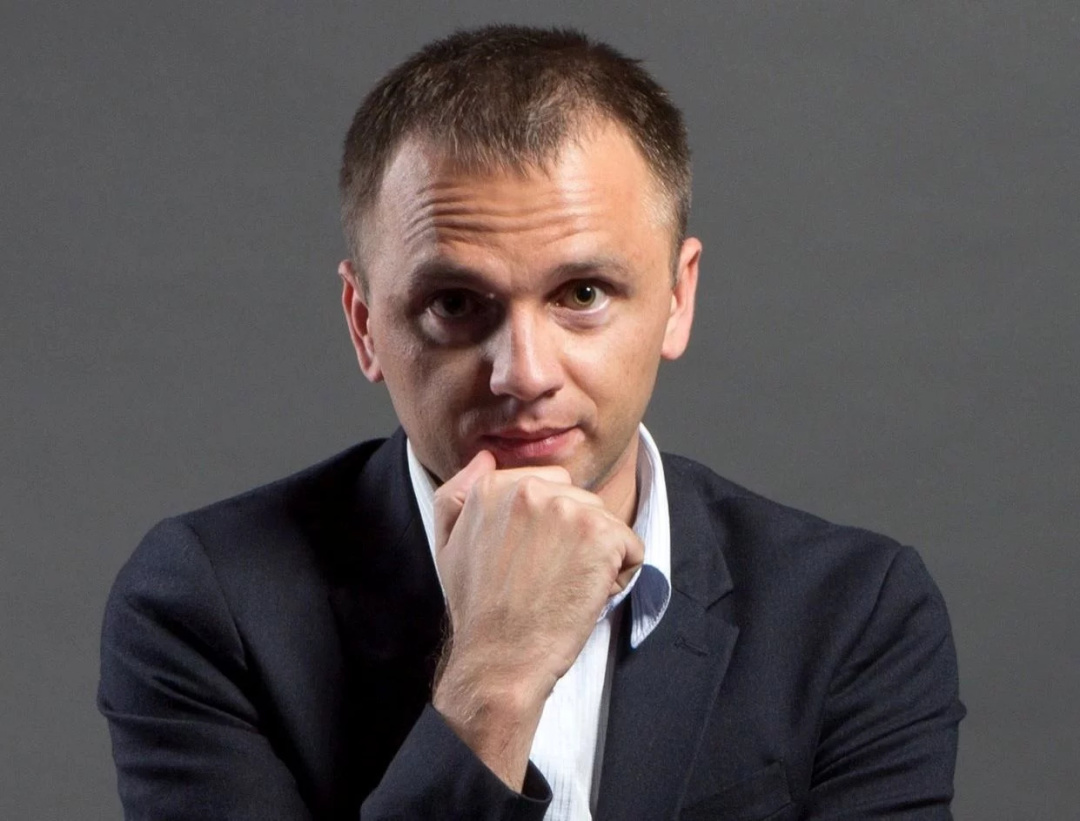
"However, the difficult counteroffensive campaign undertaken by the Ukrainian Armed Forces in the summer of 2023, along with painful pauses in Western aid, Russia’s effective operations of influence, psychological fatigue of the Ukrainian people, and thinning mobilization potential correct the situation towards the need to give a chance to a peaceful settlement and to the search for points of compromise that Ukraine may find inappropriate. The West is increasingly viewing this scenario as being the most desirable, rational and timely," the expert believes.
This is how one should look at the ongoing processes without searching for a betrayal. And this is not at all akin to information noise.
"This is a real and completely objective process. It is influenced, among other things, by President Biden’s administration’s willingness to play it safe during the election campaign, by the impact Russia’s war in Ukraine has had on the global economic and energy situation, the geopolitical advantages China is gaining from this war, the threat of nuclear escalation, and the expansion of the war into NATO countries. Radical militarization of policies scares the Western populations, and this creates a zone of electoral and political pressure on the elites, forcing them into articulating peaceful initiatives," Oleh Posternak emphasizes.
From the current perspective, the outlines of a future peace deal will become to be visible during the upcoming "hot" geopolitical summer, when the Global Peace Summit in Bürgenstock, the G7 Summit and the Washington NATO Summit are to be held. However, even if an option for a peaceful settlement appears, there are no guarantees it will suit Russia’s purposes.
"The Russian Federation, which will now try its best to get its position synchronized with China’s in order to balance out the diplomatic pressure and counter the plans of the West and Ukraine," says the expert.
"Don't panic - the "peace-making statements" being pushed for by all of our partners regarding the hypothetical peace negotiations generally meet Ukraine’s national interests"
The head of political and legal programs at the "Ukrainian Center for Social Development" NGO, Ihor Reiterovych agrees that the recent intensification of the topic of peace negotiations is connected precisely with the preparation for the Global Peace Summit in Switzerland.
"There is an objective relationship here. And since Ukraine is talking about a certain peace formula and so on, it will anyway involve negotiations, agreements of some kind. And, accordingly, various actors begin expressing their views on that issue."
In this context, the expert mentions Xi Jinping's recent visits to France, and Putin’s to China...
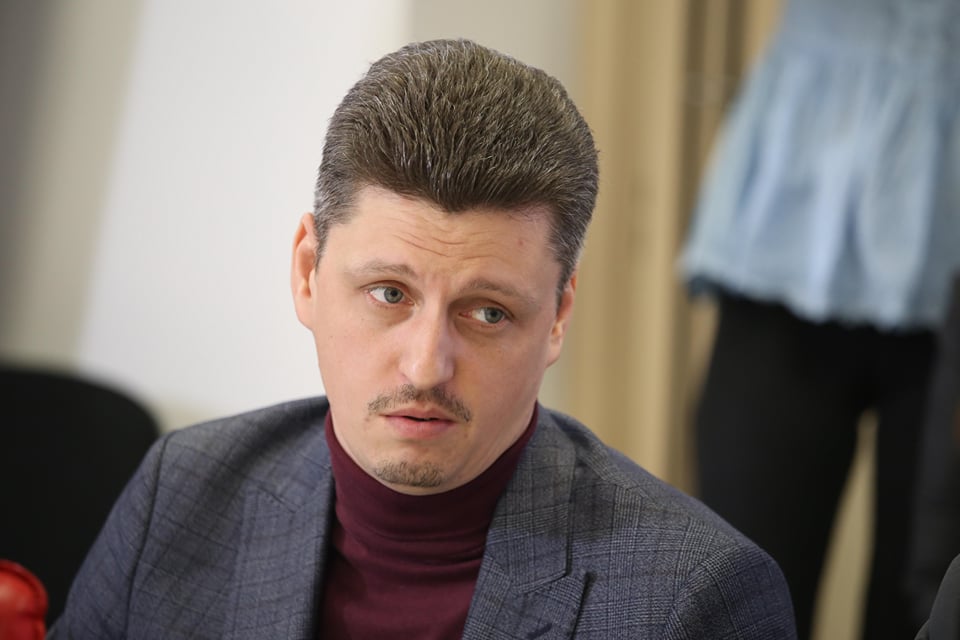
"Against this background, a number of countries came to look at China's position. But this position has not yet been fully determined and, perhaps, it is precisely in order to give Beijing kind of a push that topics regarding negotiations arise. Due account should be taken also of the situation at the Ukrainian frontline, as well as of the changes taking place in Russia following the recent pseudo "presidential elections". Some Western politicians, quite expectedly (and there is no betrayal here), began expressing some of their thoughts regarding potential peace negotiations, because they have such a scenarios in mind and they consider it necessary to bring them to the public sphere.
But the fact deserves attention that the statements made by our partners regarding the potential peace negotiations are all based on the observance of several key principles that generally correspond to the national interests of Ukraine, to our vision of how to end the war.
"Such intrusions into the information space are made to see how people in different countries will respond. They are waiting, among other things, for clear explanations of Russia’s position, how it views future talks and whether it is ready to sit down at the negotiating table now," Mr. Reiterovych went on to note.
This all should not be perceived as another manifestation of information noise...
"On the one hand, this is a real process, because the people who are talking about it -- politicians, leaders of countries -- they, of course, have some scenario in mind. That is, there is nothing extraordinary here. And we don't have to treat it as "betrayal". What matters in this context is that, against the background of these statements about negotiations, Ukraine can offer its own vision, which will coincide to some extent with the vision of these countries, so we can advance with our agenda. That is to say, Ukraine should declare how it views it."
During the time the Global Peace Summit is approaching and after it, there will be an order of magnitude more such statements made. And we have to be ready for that.
"If we respond by claiming it to be part of a hostile [psychological operation] PSYOP, there will be no point in it all. Responding to a statement made by, say, the President of the Czech Republic, we can say that we, are not opposing political-diplomatic solutions generally, but for this to happen, preliminary conditions must be set up and met. What conditions exactly? In this context, we can recall one relatively recent interview by the President of Ukraine, where he said: the main thing for us is to reach the [pre-war] borders of 2022, the separation line, and then we will turn on more active political and diplomatic measures."
The expert also mentioned China, which, in actual fact, is still waiting and undecided, but is closely monitoring the situation.
"I will be unsurprised to see Chinese representatives among attendees to the peace summit in Switzerland. Perhaps as observers, but none the less. China is still trying to "pass between the droplets" by keeping Russia on a short leash, on the one hand, and, on the other, they need to finally reach an agreement of some kind with Western countries regarding an end to the Russo-Ukrainian war."
Ihor Reiterovych claims that China has been warned in clear terms: if you don’t give up the cooperation you have with Russia now, or continue promoting Russia’s line, will not pressurize Russia into ending this war, then you can forget about the European and American markets. Therefore, Beijing will have to make hard choices in the face of serious economic difficulties of its own.
"Stagnation is gradually evolving into a crisis, which can end very badly. So China will have to make this choice, despite all the statements it is making about a strategic partnership with the Russian Federation. In fact, Beijing will likely begin putting more intense pressure on Moscow so that to get it to sit down at the negotiating table and end the war, at least its active phase."
And the Russian Federation will be forced to listen to this.
Summing up, the political analyst shared his views about what he expects from the upcoming peace summit. In his opinion, much will depend on the level of representation.
"If the level of representation will be high, if enough countries of the Global South will attend, if there will be a final communique that will designate certain mechanisms to exercise pressure on Russia - that would be one thing. If so, we will be able to say that the summit was a true success. If not, it will be just a friendly meeting in Switzerland, just a declaration of some kind of symbolic decisions that will not bring any tangible results. So the next two weeks will be very busy. Specifically, we will carefully monitor China to see if they will send a representative to attend the summit in Switzerland," Ihor Reiterovych summed up.
Myroslav Liskovych. Kyiv

